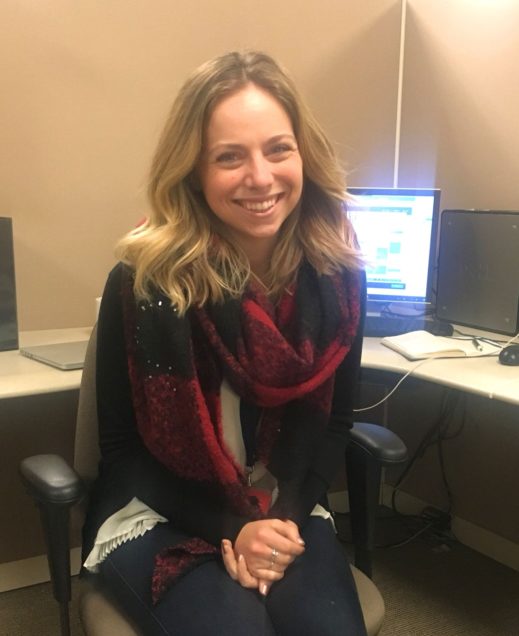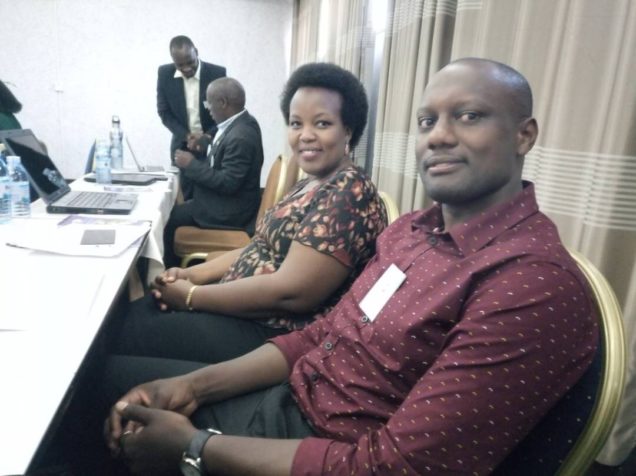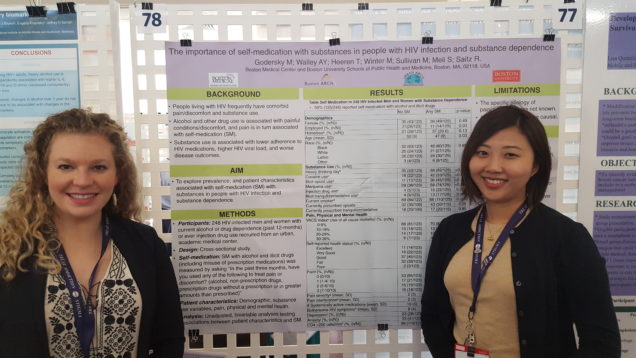Core and Cohort Updates
Core and Cohort Updates
Admin Core
The Admin Core team is beginning to plan for the 7th URBAN ARCH Annual Meeting, to be held on March 27-28, 2018 at Boston Medical Center/Boston University. The team is developing the agenda, considering ideas for sessions, and working on meeting logistics. We are excited to invite investigators from the cores and cohorts to discuss successes and findings from the original cohort projects, as well as updates on our renewal projects and affiliated studies. Click here for more information, and please email Carly Bridden at carly.bridden@bmc.org if you would like to attend the 2018 Annual Meeting.
The annual Conference on Retroviruses and Opportunistic Infections (CROI) will take place in Boston, March 4-7, 2018. The Admin Core will co-host a reception with the Providence/Boston CFAR for HIV and substance use researchers. The reception will be on the evening of Tuesday, March 6th. Please email Carly Bridden at carly.bridden@bmc.org if you would like to attend.
The Admin Core team also coordinated the biannual URBAN ARCH Data and Safety Monitoring Board (DSMB) meeting on November 13th. During this meeting, we discussed data and AE reports from the URBAN ARCH trials ADEPTT and St PETER, as well as the results from the ZINC RCT. Over the past year, the Admin Core partnered with a group that is establishing a panel of fully characterized HIV viruses. This collaboration culminated with the transfer of Russia ARCH plasma samples to the research project.
Lastly, the team would like to warmly welcome Mayowa Sanusi (pictured to the right) to the Admin Core! Mayowa is an MPH student at BUSPH, with a concentration on Community Assessment Program Design Implementation & Evaluation (CAPDIE) and Global Health. He joined the URBAN ARCH team as a Research Assistant in September. We are excited to have him as a new addition to our team!
BDM Core
The BDM Core continues active collaboration with each cohort by assisting with data management, the sample repository, conducting statistical analyses, and developing manuscripts. We are also delighted to welcome Sara Lodi, Assistant Professor of Biostatistics, to the core. Sara has been involved in HIV research for several years. Her main research interests are in causal inference and longitudinal data analyses. Since joining the BDM this fall, Sara has begun collaboration on projects related to Russia ARCH and the ZINC RCT.
BDM’s Sharon Coleman (center) presenting her poster on “False positive HIV diagnoses: lessons from Ugandan and Russian research cohorts” at the 2017 APHA meeting in November.
Uganda Cohort
As of December 1, 2017, we have enrolled 59 participants into the ADEPTT study. We have screened 303 participants with 227 eligible for further screening for latent TB, and 61 positive and eligible for the study. We’ve completed baseline procedures for all 59 participants, 54 two-week follow up study visits, 46 month-one visits, 37 month-two visits, 32 month-three visits, 22 month-four visits, 16 month-five visits, and 9 month-six visits. Nine participants have completed their course of INH and will continue to be followed in the study. Four participants have discontinued TB preventive therapy (INH) due to grade 3/4 level toxicities. We will continue to enroll participants from our previous ADEPT cohort for the next quarter.
Caroline Asimwe and Benton Amanya, both ADEPTT research assistants, presented the ADEPTT study at the first Global Health Collaborative Research Dissemination Conference in Mbarara, Uganda on November 7, 2017.
l-r; Adah Tumwegamire (data manager) and Benton Amanya (research assistant) at the Global Health Collaborative Research Dissemination Conference.
Russia Cohort and ZINC RCT
As of December 1st, St PETER has enrolled 73 participants and an additional 9 participants have continued on in the Russia ARCH cohort without enrolling into St PETER.
Enrollment graph for St PETER trial (click to enlarge graph).
 Congratulations to Dr. Judith Tsui and Dr. Jeffrey Samet (PI of ZINC RCT, St PETER, and URBAN ARCH Administrative Core) on the receipt of funding from NIAAA for a UH2 grant (PETER PAIN study), which will leverage the Russia ARCH cohort, to compare effects of low-dose naltrexone and nalmefene among persons with HIV who have chronic pain and will use a cold-pressor test for objective pain assessment. If the UH2 goal of feasibility of recruitment of 16 participants is effective, the planned UH3 component will examine the impact on 45 similar participants, including assessment of inflammatory markers.
Congratulations to Dr. Judith Tsui and Dr. Jeffrey Samet (PI of ZINC RCT, St PETER, and URBAN ARCH Administrative Core) on the receipt of funding from NIAAA for a UH2 grant (PETER PAIN study), which will leverage the Russia ARCH cohort, to compare effects of low-dose naltrexone and nalmefene among persons with HIV who have chronic pain and will use a cold-pressor test for objective pain assessment. If the UH2 goal of feasibility of recruitment of 16 participants is effective, the planned UH3 component will examine the impact on 45 similar participants, including assessment of inflammatory markers.
The Russia ARCH cohort welcomed a project coordinator, Catherine Stewart (pictured to the left), to the team. Catherine received her B.S. in Human Biology: Brain and Behavior from Brown University, and has worked Dr. Michael Stein and Dr. Jane Liebschutz’s research groups at BMC and BUSPH. She has previously been the coordinator for studies conducted among HIV/HCV co-infected heavy drinkers and HIV-positive individuals experiencing chronic pain and depression. We are very excited to have Catherine on our team!
The team is actively pursuing data analyses, abstract submissions and manuscript preparation. They are also in the midst of study start-up activities for the PETER PAIN and Alcohol Associated Comorbidities and Microbiome Evaluation in HIV (ACME HIV) studies.
Published Manuscripts:
- Asiimwe SB, Fatch R, Patts G, Winter M, Lloyd-Travaglini C, Emenyonu N, Muyindike W, Kekibiina A, Blokhina E, Gnatienko N, Krupitsky E, Cheng DM, Samet JH, Hahn JA. Alcohol types and HIV disease progression among HIV-infection drinkers not yet on antiretroviral therapy in Russia and Uganda. AIDS Behav. 2017;21(Suppl 2):204-215. PMCID: PMC5660666.
- West BS, Cheng DM, Toussova O, Blokhina E, Gnatienko N, Liu K, Samet JH, Raj A. Contraceptive use among HIV-infected females with history of injection drug use in St. Petersburg, Russia. AIDS Behav. 2017. [Epub ahead of print].
Accepted Abstracts:
- Randomized trial of zinc to reduce mortality risk, HIV disease progression & CVD risk (Matthew Freiberg et al.)
- Accepted for poster presentation at CROI 2018
- Psychosocial syndemics among HIV-positive people who inject drugs in Russia (Eileen Pitpitan et al.)
- Accepted for poster presentation at the 2018 Society of Behavioral Medicine’s Annual Meeting
Boston Cohort
The Boston ARCH Team has been meeting regularly to solidify procedures, instruments, and logistics for the 4F project. At this point, the study screener, baseline, 6-month, and annual assessments have all been written and are currently being programed and tested by the Data Coordinating Center to ensure data accuracy and safety.
In consultation with the URBAN ARCH Administrative Core, the team decided to collect saliva samples from participants at baseline and annual visits for the repository. Samples will be processed by the Genetics Core laboratory at Boston University and stored in the URBAN ARCH repository for future research.

l-r; Jasmin Choi, Susie Kim, and Aldina Mesic testing out the saliva collection kits for the 4F project.
To assist with participant enrollment and data collection, Boston ARCH will soon be hiring an additional research assistant. Recent graduates with at least one year of professional experience and a passion for marginalized communities are encouraged to apply.
New research continues to emerge from the original Boston ARCH Bone cohort (from the first five years of the study). Theresa Kim and Meg Sullivan will present an abstract proposal entitled, “Alcohol Use Disorder, Receipt of ART, and HIV Viral Suppression” at the 41st Annual RSA (Research Society on Alcoholism) Scientific Meeting in San Diego in June, 2018. The symposium titled “Polysubstance use is the norm: Time for research and practice to recognize and address it,” organized by Rich Saitz, was accepted at the College of Problems of Drug Dependence (CPDD) 2018. Furthermore, an article written by collaborator Sara Lorkiewicz in Substance Abuse was one of the top 10 high scoring articles in the Taylor & Francis Altmetric report for the first week of December. The article, entitled, “Lifetime Marijuana and Alcohol use and Cognitive Dysfunction in People with Human Immunodeficiency Virus Infection” is available here.
l-r; Mariana Krueger and Jasmin Choi presented a Boston ARCH poster at Boston University School of Medicine’s Evans Research Day in October.


